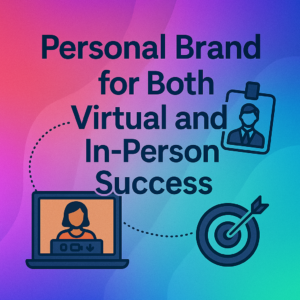In the fast-paced world of events, success doesn’t just come from flashy advertisements or celebrity appearances — it comes from understanding people. At the heart of Successful Event Marketing Campaigns lies one key ingredient: psychology. The ability to connect emotionally, influence decisions, and inspire action is what turns an ordinary event into a memorable experience.
In this blog, we’ll explore the psychological principles that make event marketing effective — from building anticipation and creating trust to crafting messages that drive people to attend, engage, and share. By understanding human behaviour, you can design Successful Event Marketing Campaigns that resonate deeply and deliver measurable results.
1. Understanding Human Motivation: Why People Attend Events
Every successful event begins with understanding why people choose to attend. While logistics and quality matter, emotions drive decisions. People attend events to connect, learn, celebrate, or escape routine.
To build Successful Event Marketing Campaigns, marketers must tap into these motivations. For instance:
-
Social connection: People love belonging to a community. Use messaging that highlights togetherness, networking, and shared experiences.
-
Personal growth: Many attendees seek learning opportunities. Emphasise new skills, insights, or expert sessions.
-
Entertainment and enjoyment: Create anticipation through visuals, teasers, and experiences that promise excitement.
By appealing to these emotional needs, your campaign instantly becomes more human-centred and effective.
2. The Power of Emotional Triggers in Event Marketing
Emotion is the most powerful driver of action. Research shows that people remember how an event made them feel more than what they saw. Therefore, emotion-driven storytelling is a cornerstone of Successful Event Marketing Campaigns.
Here are a few psychological triggers to use:
-
Joy and anticipation: Build excitement with countdowns, sneak peeks, and early-bird offers.
-
Fear of missing out (FOMO): Highlight limited seats, exclusive access, or special guests.
-
Curiosity: Use intriguing visuals and mysterious headlines to make people want to know more.
-
Belonging: Share testimonials or photos of past participants enjoying the experience.
When people feel emotionally involved, they are far more likely to take action — whether it’s buying a ticket or sharing the event with others.
3. The Role of Social Proof in Building Trust
People trust people. That’s why social proof plays such a vital role in Successful Event Marketing Campaigns. When potential attendees see others talking about or endorsing your event, they’re more likely to trust your brand and make a commitment.
Here’s how you can use social proof effectively:
-
Testimonials and reviews: Feature positive feedback from past participants or speakers.
-
Influencer endorsements: Collaborate with respected figures who align with your event’s theme.
-
User-generated content: Encourage attendees to share their excitement using your event hashtag.
-
Media coverage: Highlight mentions from reputable media outlets to add credibility.
The human brain relies on others’ experiences to make decisions. By showcasing genuine engagement, you help potential attendees feel confident in their choice.
4. Creating the Perfect First Impression
The first impression of your event is formed long before the event begins. It starts the moment someone sees your marketing campaign. The design, tone, and message of your promotions all contribute to shaping that impression.
To craft Successful Event Marketing Campaigns, ensure that every touchpoint — from your website to your social media posts — reflects your event’s identity. A clear visual hierarchy, consistent branding, and a warm tone of voice make your audience feel welcome and informed.
Moreover, keep the registration process simple. Complex forms or unclear pricing can discourage even the most interested participants. A smooth, trustworthy digital experience sets the tone for what’s to come and reinforces a positive psychological association with your event.
5. Using the Scarcity Principle to Drive Action
One of the most powerful psychological strategies in Successful Event Marketing Campaigns is the scarcity principle. When something is limited — whether it’s seats, offers, or time — people perceive it as more valuable.
You can use this principle ethically by:
-
Offering early-bird discounts for a limited period.
-
Highlighting limited availability of VIP tickets or workshop slots.
-
Emphasising deadlines in your communication: “Register by Friday to secure your spot.”
This sense of urgency taps into human instinct and drives quicker decision-making, ensuring that people commit rather than postpone.
6. Storytelling: The Heart of Every Successful Event Marketing Campaign
Storytelling transforms ordinary promotions into memorable narratives. Humans are naturally drawn to stories — they help us connect emotionally and remember information. Therefore, integrating storytelling into your campaign can significantly elevate its impact.
In Successful Event Marketing Campaigns, storytelling works when it aligns with your event’s purpose. For example, tell the story of how your event was created, the challenges faced, or the positive impact it aims to make. Share stories of past participants who achieved success or transformation through your events.
A compelling narrative doesn’t just inform; it inspires. And when your audience feels inspired, they’re more likely to engage and attend.
7. Consistency and Familiarity Build Confidence
Consistency builds trust — a psychological principle that underpins all Successful Event Marketing Campaigns. When your branding, tone, and visuals remain consistent across platforms, people perceive your event as reliable and professional.
Familiarity also increases comfort. Seeing your logo, colour palette, or tagline repeatedly creates recognition and confidence. This is why maintaining a unified presence across emails, social media, and offline materials is essential.
Furthermore, consistency should extend beyond visuals. The messaging, voice, and emotional tone should align perfectly with the experience you promise. When everything feels connected, attendees develop a deeper sense of trust and loyalty.
8. The Impact of Personalisation on Engagement
In today’s digital age, people expect personalised experiences. Personalisation makes individuals feel seen and valued — a psychological trigger that greatly enhances engagement.
Incorporating personalisation into Successful Event Marketing Campaigns could include:
-
Sending customised email invitations with the recipient’s name.
-
Recommending specific sessions or workshops based on interests.
-
Offering tailored discounts or packages for returning participants.
By using data analytics and CRM tools, marketers can segment audiences effectively and communicate in ways that feel personal and relevant. When people feel personally connected, their likelihood of attendance and participation increases dramatically.
9. Post-Event Psychology: Sustaining the Connection
The psychological journey doesn’t end when the event concludes. To ensure Successful Event Marketing Campaigns, it’s essential to extend engagement beyond the event itself.
Post-event marketing helps maintain relationships and fosters brand loyalty. You can achieve this by:
-
Sending thank-you messages expressing appreciation.
-
Sharing event highlights, photos, or videos to rekindle positive emotions.
-
Inviting feedback to show that their opinion matters.
-
Offering exclusive early access to future events.
When people feel appreciated and involved, they’re more likely to become repeat attendees and brand advocates.
10. Ethical Persuasion and Authenticity
Modern audiences are highly aware of marketing tactics, so authenticity is non-negotiable. The most Successful Event Marketing Campaigns are built on honesty, transparency, and genuine passion.
Ethical persuasion focuses on guiding people’s decisions through clarity and value, not manipulation. For example, instead of exaggerating results, highlight real benefits and experiences. Authentic visuals, genuine testimonials, and open communication foster trust — and trust is the foundation of long-term success.
Conclusion
The secret to Successful Event Marketing Campaigns lies not in flashy ads or high budgets but in understanding the psychology behind human behaviour. When you appeal to emotions, build trust through social proof, use scarcity ethically, and communicate authentically, you create not just an event — but a meaningful experience.
Event marketing is about people, not promotion. By blending creativity with psychology, you can craft campaigns that resonate deeply, inspire action, and create lasting memories long after the lights go out.
Get Personal Branding with complete interview assistance for UK jobs: www.brandme4job.com
Get your CV checked and improve it with section-based, detailed recommendations, for free: Brand Me 4 Job Free CV Check!
Join www.stunited.org to build a wide network in the United Kingdom.
Contact us to get Career Assistance in the UK: Call Us Now!
To get regular job, career, and industry updates along with important UK jobs-related information, follow us on: Instagram, LinkedIn & Facebook





